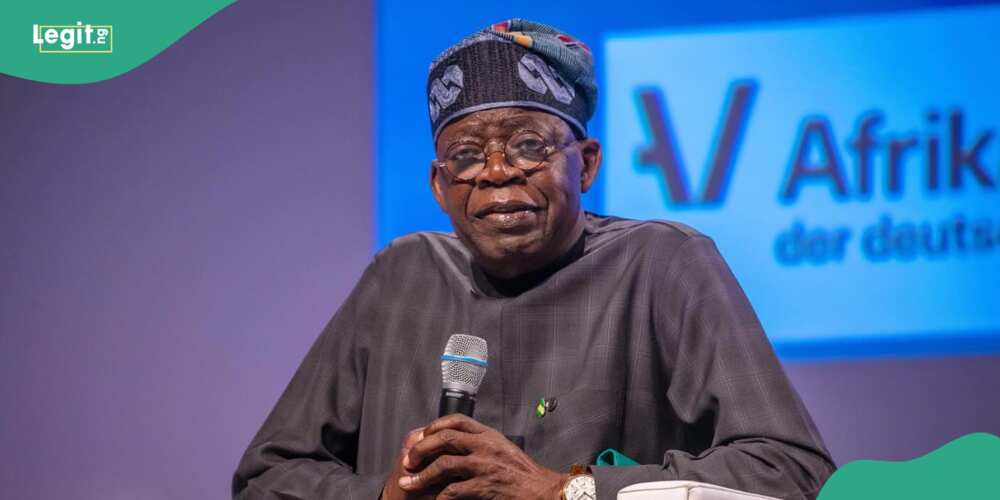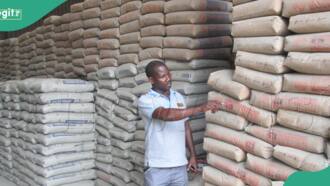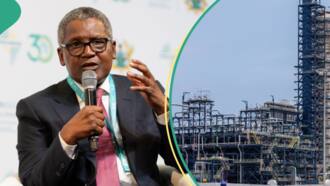[ad_1]
- A recent finding has shown that monthly petrol subsidy payments have ballooned under President Bola Tinubu
- Currently, Nigeria spends about N907.5 billion monthly subsidising the product, higher than Buhari’s era
- The Nigerian National Petroleum Company Limited addressed the reported increase in the price of petrol.
Pascal Oparada has over a decade of experience covering Tech, Energy, Stocks, Investments, and Economy.
Nigeria’s petrol subsidy is now higher than pre-Tinubu’s administration.
An analysis shows that Nigeria is paying about N907.5 billion monthly in the landing cost of the product, which is attributed to the black market exchange rate.

Credit: State House
Source: Facebook
Petrol landing cost hits N1,000 per litre
The findings show that the landing cost of the product has surged to N1,009 per litre, a massive increase from N720 per litre as of October 2023.

Read also
Looming fuel scarcity as tanker drivers threaten to stop lifting petrol, announce shutdown date
BusinessDay reports that the NNPCL remains the sole importer of petrol in Nigeria after marketers said they could no longer bring in the product due to the volatility in the exchange rate.
President Tinubu announced on May 29, 2023, that the obnoxious petrol subsidy had been removed, showing that Nigeria could invest the surplus into other critical areas.
NNPCL denies petrol price increase
The development follows a recent report by Legit.ng that NNPC has denied the reported increase in the price of the product.
In a press statement signed by Olufemi O. Soneye, its chief corporate communications officer, on its X page, the company assured us of no increase in the cost of Premium Motor Spirit (PMS), commonly known as petrol.
This comes after long queues were noticed in some filling stations on Monday, February 6, as petrol scarcity resumed across some parts of the country.

Read also
Nigerians groan as cement price hits new High in 6 days as inflation rises to highest in 17 years
Most filling stations in Lagos, Ogun, and Abuja were closed to cars in the last few days.
Long lines of cars formed at the pumps of the handful open to the public. Most stations that dispensed gasoline had a single pump, which made the lines longer.
Some NNPCL station managers said that the pressure on NNPCL’s supply is the direct cause of the gasoline shortfall at their stations. They clarified that most, if not all, marketers now rely on the company for petrol supply since it gives the most competitive ex-distribution price for the commodity.
Petrol prices may rise as crude oil price surges
Analysts have predicted an increase in the price of petrol as crude oil prices rose slightly recently.
The price of Brent Crude rose to $83.19 barrels on Tuesday, February 13, 2024, an increase of $1.19 compared to its cost the previous day, according to data from the Nigerian government, showing that the country’s output rose to 1,426,574 barrels per day in January 2024.
The gain in crude oil price and the increase in Nigeria’s output would lead to more Forex earnings for the country, which has battled FX scarcity for months.
In its latest crude oil condensate data, the Nigerian Upstream Regulatory Commission (NUPRC) said the country’s output increased by 91,476 barrels per day in January 2024 compared to the production figure of 1,335,098 barrels per day.
The NUPRC figures showed that with the addition of condensate, Africa’s largest oil producer’s output rose to 1.64 million barrels per day in January 2024, up from the 1.55 million barrels per day recorded in December 2023.
Dangote Refinery finally sets date to sell fuel to Nigerians
Legit.ng reported that the world’s biggest single train refinery, the Dangote Refinery, has made an essential move by issuing tenders to sell its first two fuel cargoes for export.
The development is an essential step for the newly launched refinery, which has generated a buzz in the industry.

Read also
Dangote Refinery finally set date to sell fuel to Nigerians as another Refinery begins production
A report quotes three sources saying that the first cargo of 65,000 metric tons of sulphur straight-run fuel oil, which Dangote has awarded to Trafigura, is due to load at the end of February.
Source: Legit.ng
[ad_2]
Source link






